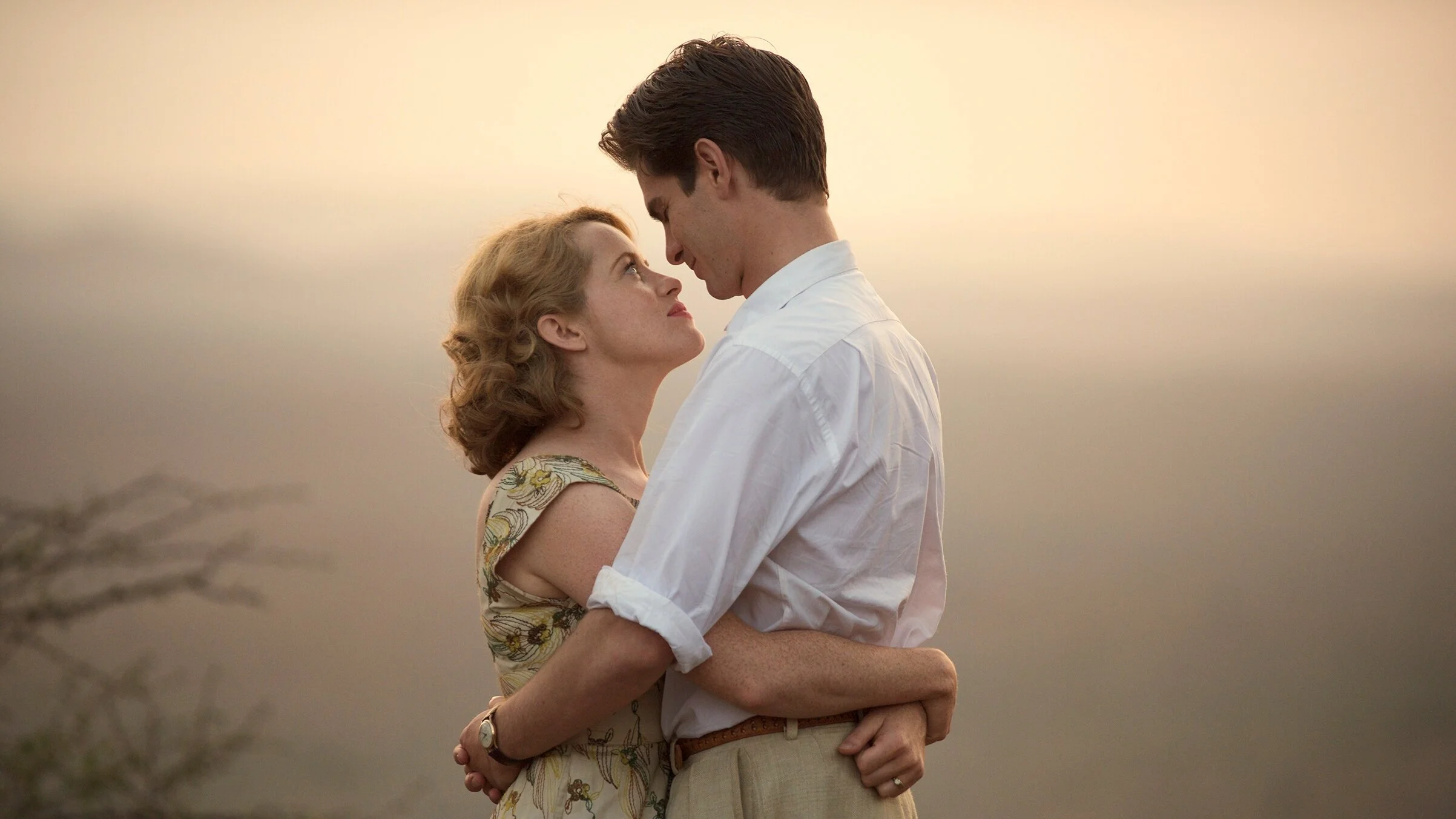Breathe
Andrew Garfield and Claire Foy shine in a film about triumph in adversity.
Andrew Garfield and Claire Foy
Finding slightly different words for a now familiar declaration, this film begins by telling us that what follows is true. The producer here is Jonathan Cavendish and Breathe, as written by William Nicholson (he who gave us the now classic Shadowlands in 1993), is the story of Jonathan's parents Robin and Diana. They are played by Andrew Garfield and Claire Foy, while the actor Andy Serkis makes his directorial debut. The many who admire Serkis the actor have a warmth of feeling for him, so it is all the more pleasing to record that Breathe is an immensely promising start to what looks set to provide him with a second string to his career in cinema. But it is also the case that in a sense this film is the victim of its own success.
Breathe lasts for close on two hours and its first half hour is for the most part stunning. At least three factors contribute to this: Garfield and Foy are both admirable, Nicholson's screenplay charting the courtship of Robin and Diana and their marriage in 1957 is wonderfully fast-moving and succinct and Serkis's direction brings all this together admirably. The couple's upper class lives emerge as very English and very real with just a touch of romanticism added effectively (we see and hear a record of Cole Porter's song 'True Love' being played). But then the tone changes when, late in 1958 as they await the birth of their son, Robin is struck down by polio and finds himself paralysed for life.
British actors who turn directors often deal in grim subject matter (think of Gary Oldman with Nil By Mouth in 1997 and Paddy Considine with Tyrannosaur in 2011) and on paper this film could sound comparable. But, if the subject matter may put off some audiences, it should be stressed that Breathe exists to testify to what this couple achieved. Defying his doctor, Robin left hospital to be looked after at home by Diana whose attitude was crucial in making him put aside his initial despair in order to continue to live life and become a loving father. By living in this way for well over thirty years, he completely overturned the medical diagnosis of a short life expectancy and went on to promote the production of special wheelchairs with respirators as used by himself to help others.
It is very rare indeed for a film to be better than its screenplay and the problem that emerges here is that Nicholson's approach to tracing the story over the years is to provide a series of set pieces, be they essentially comic or dramatic. But set pieces are exactly what they feel like and he loses the conviction of the early scenes. I have in mind such passages as the overt humour of Robin being smuggled out of the hospital in defiance of his doctor and, later on, the sense of calculated drama when a trip to Spain results in a crisis. Towards the end when Robin decides that the time to die has come at last due to a deterioration in his condition, the film valuably touches on the issue of the right of the individual to opt for death and at this stage the film regains some - but not all - of its initial quality (a reprise of 'True Love' is a mistake, especially since Robin as a non-believer would reject its belief in a guardian angel). But when it is good Breathe is very, very good: better in fact than one would ever have anticipated.
MANSEL STIMPSON
Cast: Andrew Garfield, Claire Foy, Tom Hollander, Hugh Bonneville, Ed Speleers, Stephen Mangan, Jonathan Hyde, Dean-Charles Chapman, Penny Downie, David Wilmot, Amit Shah, Harry Marcus, Diana Rigg.
Dir Andy Serkis, Pro Jonathan Cavendish, Screenplay William Nicholson, Ph Robert Richardson, Pro Des James Merifield, Ed Masahiro Hirakubo, Music Nitin Sawhney, Costumes Charlotte Walter.
Imaginarium/Silver Reel/BBC Films/BFI/Embankment Films-STX Entertainment.
117 mins. UK/Switzerland. 2017. Rel: 27 October 2017. Cert. 12A.


